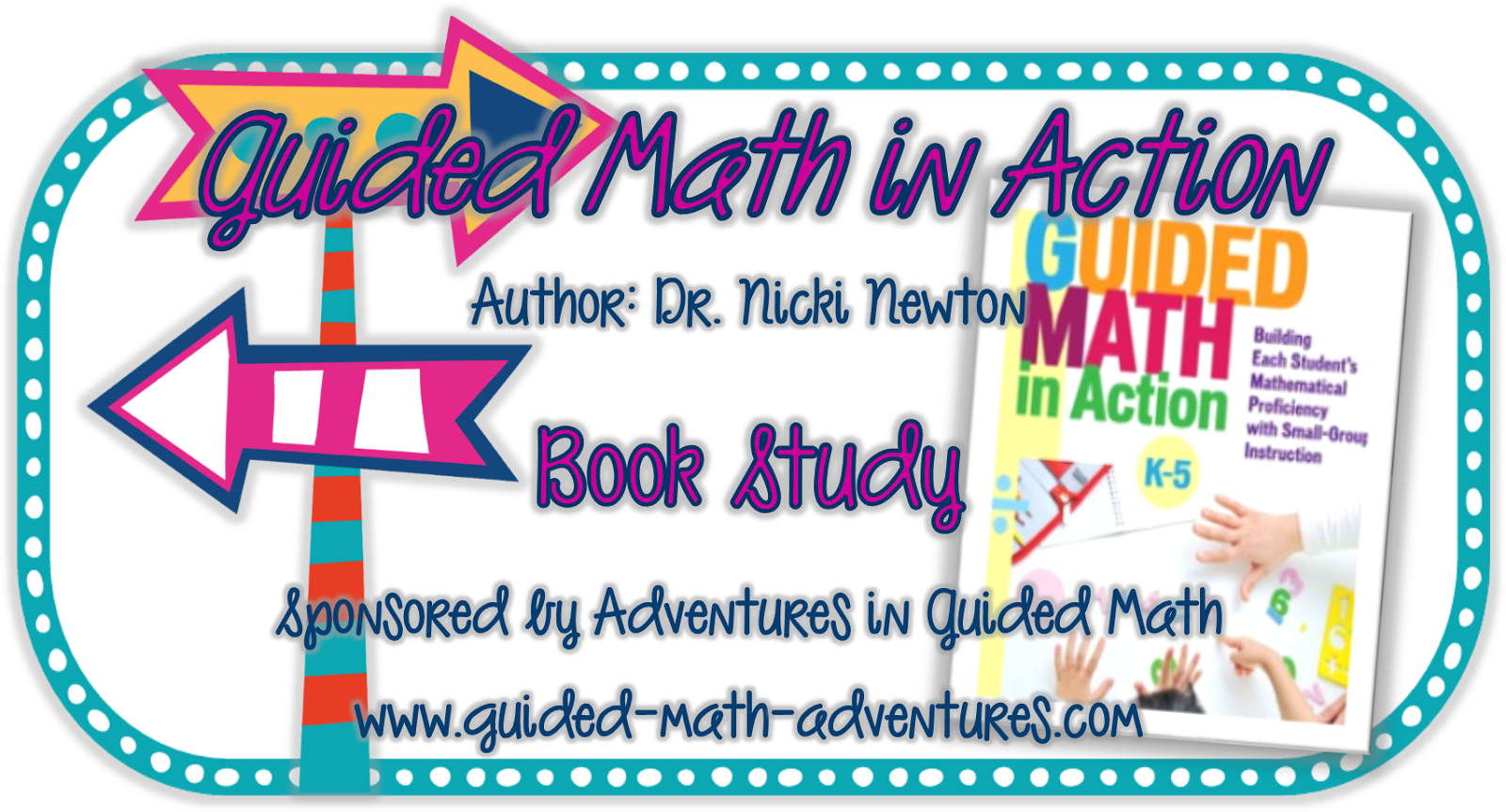Happy Sunday, friends!
I'm back for the next chapters in our book study.
Remember I will be posting on Thursdays and Sundays...now if only I could remember that! Did you notice I posted too early last time??? If you missed that one (chapters 1 and 2) click here.
Chapter 3 (my thoughts)
Practice, practice, practice. This chapter on managing the math workshop reminded me a lot of how I begin the Daily 5 each year. Expectations must be clear. Lots of modeling--desirable and less desirable behaviors. Dr. Nicki suggests spending the first four weeks of school practicing routines.
The chapter also had a lot of good thoughts and examples on organizing the workshop. I especially loved this quote from page 35, "Staying organized is going to help you keep your sanity."
1
I don't have a teacher's toolkit, but I need one now! Ha! I spent time making sure I had all the necessary materials and manipulatives ready for my class each day. Most of them were centrally located on a shelf in my classroom, but I can see now that by organizing a toolkit I would actually save myself time.
2
My students do have toolkits. They have rulers, templates (with shapes and rulers on the side), base 10 blocks, coins, cards for card games, dice, whiteboards, markers and erasers. As I mentioned in the first post, all of these items were kept in team tubs and the students could access them at any time.
3
Establishing routines and expectations is hard work! I feel like the first couple of weeks of school that is all I do.
I explain a lot.
I model a lot.
I have students explain a lot.
I have students model a lot.
Do you see the repetition? That is really what establishing routines and expectations is all about. We practice over and over again.
I get to the point where I just want to teach already and feel like pulling my hair out. Anyone else?
Psst...this is when I miss my previous class the most. :-)
But I persevere, knowing that one day my class will be working like a well-oiled machine and I will stand back in awe of how independent my students have become.
Chapter 4 (my thoughts)
I really appreciated the opening to this chapter called Working with Everyone. Too often I think teachers either choose to or they are expected to work with the low kids and push the higher kids off to the side. It is just not fair! Maybe I'm more sensitive to this because I have two pretty smart kids and I don't want them to be pushed to the side. I want them to be benefit from their teacher's instruction and be challenged as well.
Dr. Nicki says, "All students need the teacher's attention at some point to push them to the next skill level (pg. 41)." She also cautions against having a teacher's assistant work with the same group all the time.
Forming groups (which should be flexible) should be based on math data that the teacher collects on each student. One example would be a pre-assessment as you move into a new unit. I'm definitely weak in the area of record keeping in math and will need to get a system in place so that I can group students and move them as needed. I'm looking forward to seeing ideas on this from those who have already started guided math.
"There is no one right way to schedule (pg. 43)."
"Create a system that you will use (pg. 45)."
Thank you, Dr. Nicki!
I love the freedom the above quotes give to teachers. Teaching is all about what works for you and your class. Sometimes I think we feel pressured to follow a certain structure or routine when it is really okay to "make it work for you."
1
Yes, but not consistently. Guided math here I come!
2
Very fluid. I normally pulled students who struggled with a particular skill or problem based on what I was observing (or grading).
3
Remember I said I was weak in this area... I keep math grades and test scores. I also keep a record of where the kids are on their facts practice. I don't keep notes on individual students (at least not on paper anyway). This is definitely a goal for me this year. I can see the value in getting to know my kids more mathematically and having records of where they are (and where they need to be).
Now I have started thinking...
How will I do this with my curriculum (SAXON)? Hmmm...
Anyone out there have suggestions for using a curriculum in a guided math structure? I'd love to hear it!
See you on Wednesday Thursday for chapter five! :-)
P.S. Look what I found on YouTube...Dr. Nicki Newton. Lots of goodies!











